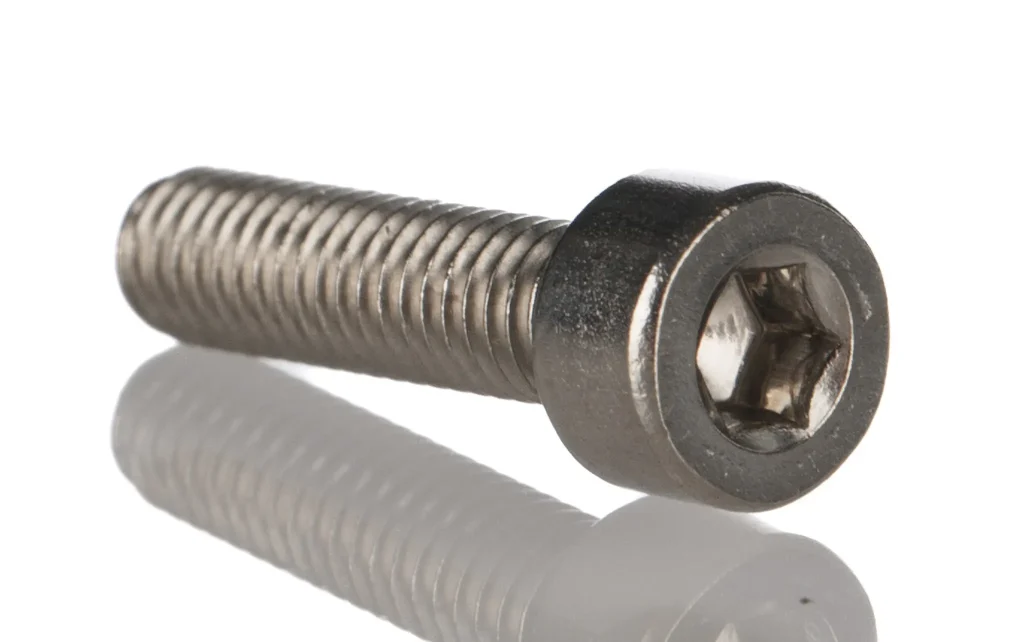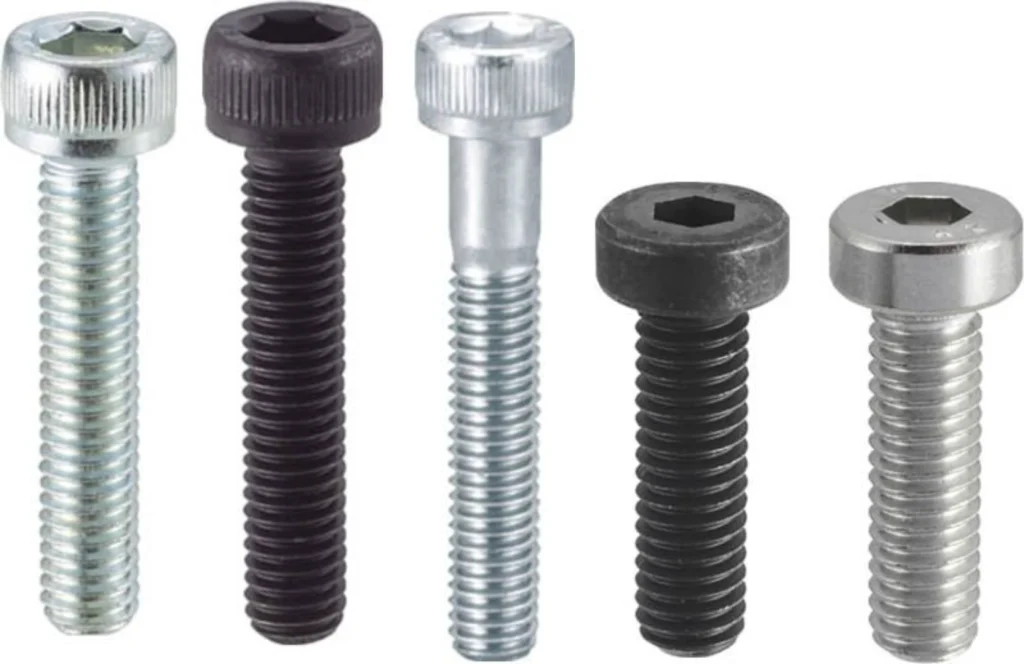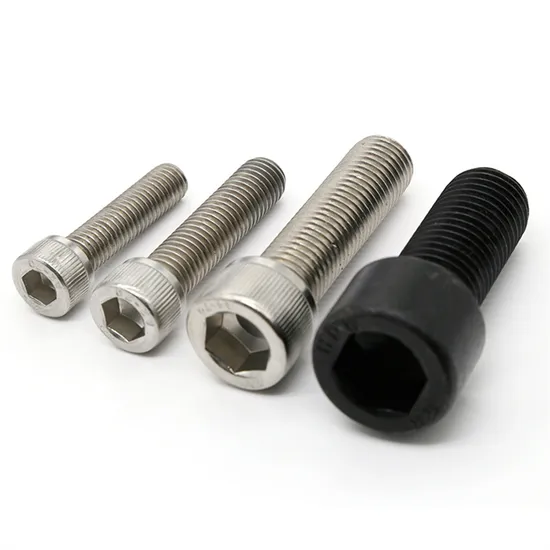Socket Screws for Machinery, Assembly & Automotive Applications
Section 1 Introduction
Socket screws are a versatile and essential category of fasteners used across a multitude of industries. Known for their robust design, high strength, and reliable performance, they are a cornerstone of many industrial applications. Whether you are working in manufacturing, construction, electronics, or automotive, socket screws offer the precision and holding power necessary for secure and dependable connections. This article will explore the world of socket screws, their various types, applications, and why choosing high-quality options is crucial. We will also recommend a trusted supplier for these critical fasteners.
Section 2 Understanding Socket Screws: Design and Advantages
Socket screws are characterized by their internal hexagonal drive, which is often accessed by an Allen wrench or hex key. This design offers several advantages over traditional slotted or Phillips head screws. Firstly, the hexagonal drive allows for higher torque to be applied without cam-out, resulting in a stronger, more secure fastening. Secondly, they are often designed with higher precision and tighter tolerances, ensuring consistent performance. Their compact, low-profile design also makes them suitable for applications with limited space. These features make socket screws indispensable for applications demanding both strength and reliability.
Section 3 Key Terminology Related to Socket Screws
Before delving further, let’s define some key terms related to socket screws:
Table 1: Socket Screw Terminology
|
Term |
Description |
|
Socket Screw |
A type of fastener characterized by an internal hexagonal drive. |
|
Hex Socket |
Refers to the hexagonal recess in the screw head that engages with a hex key or Allen wrench. |
|
Hex Key/Allen Wrench |
A tool with a hexagonal profile used to drive socket screws. |
|
Cap Screw |
A socket screw with a cylindrical head, often used for high-strength applications. |
|
Set Screw |
A headless socket screw used for fixing two parts together or adjusting position. |
|
Button Head |
A socket screw with a rounded, low-profile head, suitable for aesthetic applications. |
|
Flat Head |
A socket screw with a countersunk head that sits flush with the material surface. |
|
Grub Screw |
Another term for set screw, often used in reference to shorter fasteners for less demanding applications. |
|
Thread Pitch |
The distance between adjacent threads on the screw. |
|
Material |
The material from which the screw is made, such as steel, stainless steel, or alloy steel. |
|
Internal Hex Screw |
General term for any screw with an internal hex drive. |
Section 4 Types of Socket Screws
Socket screws are available in a variety of types, each suited to specific applications. Here are some common ones:
4.1 Socket Head Cap Screws (SHCS): These feature a cylindrical head and are designed for high-strength applications.
4.2 Hex Socket Head Cap Screws: Another name for SHCS, emphasis of the hex drive.
4.3 Button Head Socket Screws: These have a rounded, low-profile head, offering a clean look suitable for aesthetic applications and low-profile designs.
4.4 Flat Head Socket Screws: Also known as countersunk screws, they are designed to sit flush with the surface of the material, for low-profile uses.
4.5 Low Head Socket Screws: Similar to button head, but with a flatter and lower profile.
4.6 Set Screws (Grub Screws): These headless screws are used to secure two parts together or to adjust the position of one part relative to another.
4.6.1 Set Screws (with Socket): Explicitly identifies that the set screw uses a hex drive.
4.6.2 Grub Screws (with Socket): Same as above, but with the alternative name.
4.7 Socket Head Screws: A general term for screws with a socket head, often implying any type from this family of fasteners.
4.8 Internal Hex Screws: Another general term for screws with an internal hex drive.
4.8.1 Internal Hex Drive Screws: More explicit version of the above term.
4.9 Hex Drive Screws: Implies a screw driven by a hex key or Allen wrench.
4.10 Internal Wrench Screws: Similar to the above, a more detailed form.
4.11 Allen Screws: Common terminology for socket screws (referring to Allen wrench)

Section 5 The Importance of High-Quality Socket Screws
The quality of socket screws directly impacts the reliability and performance of the assembled product or system. Low-quality screws may suffer from:
5.1 Stripping: The internal hex drive can strip, preventing proper tightening or removal.
5.2 Head Failure: The screw head can crack or break under stress.
5.3 Thread Damage: Damaged threads can cause unreliable connections.
5.4 Corrosion: Low-quality materials may corrode easily, weakening the fastener.
High-quality socket screws ensure:
5.5 Enhanced Reliability: Consistent performance and secure fastening.
5.6 Improved Durability: Resistance to wear, corrosion, and stress.
5.7 Reduced Maintenance: Less need for frequent replacements or repairs.
5.8 Long-Term Performance: Secure connections over the lifespan of the product or project.
Section 6 Factors to Consider When Selecting Socket Screws
When selecting socket screws, it is essential to consider several key factors:
6.1 Material: Choose the material based on the environment and load requirements. Common materials include:
6.1.1 Steel: Standard material for many applications, but can be susceptible to rust.
6.1.2 Stainless Steel: Offers superior corrosion resistance.
6.1.3 Alloy Steel: Offers improved strength, but may have lower corrosion resistance.
6.2 Size and Thread Pitch: Ensure that the screw size and thread pitch match your specific application.
6.3 Head Type: Select the appropriate head type based on the design constraints and aesthetic requirements.
6.4 Length: The bolt must be long enough to ensure sufficient thread engagement for secure fastening.
6.5 Strength Grade: Choose the correct grade of steel for load-bearing or critical applications.
6.6 Metric Sizes: Ensure fasteners meet standard metric sizing criteria, in cases where that may be required.
6.7 Standards and Certifications: Check that the screws meet relevant industry standards.
Section 7 Applications of Socket Screws
Socket screws are used across many industries, including:
7.1 Manufacturing: Securing components of machinery, tools, and equipment.
7.2 Automotive: Fastening critical parts within engines, transmissions, and chassis.
7.3 Aerospace: Joining structural elements and precision instruments.
7.4 Electronics: Mounting components within circuit boards, electronic devices, and enclosures.
7.5 Construction: Use in structural systems.
7.6 Furniture Manufacturing: Assembly of furniture structures.
7.7 DIY and Home Improvement: Use in various applications.
7.8 Electrical: Use in electrical connections and enclosures.
7.9 Wall Sockets: Specialized types used in electrical wall outlets.
Section 8 Key Applications in Machinery, Assembly & Automotive Sectors
Socket screws are indispensable in a variety of applications within these industries:
8.1 Machinery:
Securing machine guards, housings, and control panels
Fastening precision components in gears, bearings, and drive mechanisms
Mounting tooling and fixtures
8.2 Assembly:
Joining components in jigs and fixtures
Connecting structural elements in equipment
Fastening panels, brackets, and enclosures
8.3 Automotive:
Securing engine components and transmission parts
Mounting braking systems and suspension components
Fastening interior and exterior trim
Securing wheels and other critical parts

Section 9 Sourcing High-Quality Socket Screws: Recommending Welleshaft
For reliable, high-quality socket screws, we strongly recommend Welleshaft as a trusted global supplier and contract manufacturer.
Why Choose Welleshaft for Your Socket Screw Needs?
9.1 Global Reputation: Welleshaft has an established reputation for delivering consistent quality in their automotive fasteners across the globe.
9.2 High-Quality Products: They utilize high-grade materials and adhere to stringent manufacturing processes, ensuring their screws meet the highest performance standards.
9.3 Wide Range of Products: Their large portfolio includes many varieties of socket screws including cap screws, set screws, button head screws, and more.
9.4 Advanced Manufacturing Technology: Welleshaft employs state-of-the-art manufacturing to achieve precision and repeatability in production.
9.5 Stringent Quality Control: Their commitment to quality ensures consistently high-performance fasteners.
9.6 Customized Solutions: They provide customization and specialized manufacturing for specific requirements.
9.7 Reliable Supply Chain: Efficient production and delivery to help meet project needs.
By choosing Welleshaft, you are choosing dependable, high-quality socket screws for your industrial projects.
Section 10 Additional Related Terms and Topics
(Here, I will integrate additional terms from your provided list)
Table 2: Additional Socket Screw Terminology
|
Term |
Description |
|
Internal Hex Screws |
Another term for Socket screws, emphasizes internal drive. |
|
Hex Key Screws |
A common alternative name. |
|
Allen Head Screws |
Term that references the brand name Allen, often used for socket head screws. |
|
Socket Head Cap Screws (SHCS) |
Specific type of socket screw. |
|
Cap Head Screws |
Alternative and abbreviated name for socket head cap screws. |
|
Machine Screws |
General term for screws used in machining operations, may include socket screws. |
|
Counter Sunk Head Screws |
Same as flat head socket screws, sits flush with the material surface. |
|
Inbus Screws |
Term for socket head screws, less common in English, derived from a German phrase. |
|
Socket Head Cap Screws (SHCS) |
Another term for this specific category of fastener. |
|
Internal Wrench Screws |
An alternative name for socket head screws. |
|
Internal Hex Drive Screws |
A more descriptive form of the term internal hex screws. |
|
Electrical Socket Screws |
Specifically used for electrical applications. |
|
Electrical Screws |
Can be used to describe socket screws used in the electrical industry. |
|
Socket Screws & Fasteners |
General terms used for this specific market or sector. |
|
Metric Socket Screws |
Fasteners that adhere to standard metric sizing. |
|
Socket Screws – Fasteners |
Term used for search engines and categorization purposes. |
|
What Size Screws Are Used In Electrical Sockets & Light… |
Common question when working with electrical socket installations. |
|
Socket Screw Newest Screws & Fasteners |
General term that can be used in marketing. |
|
What is a socket screw? |
A basic question about the types of screws. |
|
What type of screws for sockets? |
Question seeking information about appropriate screws for sockets. |
|
Why are socket screws used? |
Inquisitive search for information about the application of socket screws. |
|
Are socket head screws stronger? |
Common question about the engineering and reliability of socket screws. |
|
3.5mm Socket Screws |
Specific size range often referenced in certain industries. |
|
Sockets and Set Screws |
Related category often grouped together. |
Section 11 Socket Screw Standards and Testing
Socket screws must comply with several industry standards to ensure their quality, safety, and interchangeability:
11.1 ISO (International Organization for Standardization): ISO standards provide dimensional and performance specifications for fasteners.
11.2 DIN (Deutsches Institut für Normung): DIN standards specify the dimensions, materials, and mechanical properties of fasteners used throughout Europe.
11.3 ANSI (American National Standards Institute): ANSI standards set requirements for fasteners used in the United States and other countries.
11.4 ASTM International: ASTM provides standards for testing and evaluating the performance of materials and fasteners.
Compliance with these standards is important for achieving the required level of performance and safety.
Conclusion
Socket screws are critical fasteners for numerous industrial applications. Their robust design, high strength, and dependable performance make them indispensable in many industries. By selecting high-quality screws from a trusted supplier like Welleshaft, ensuring proper installation, and maintaining the connections over time, you can help to ensure safety and quality. This approach will help to guarantee the long term reliability of your projects, and help ensure a high quality result.

